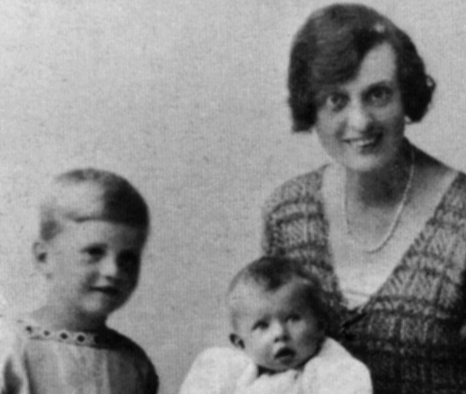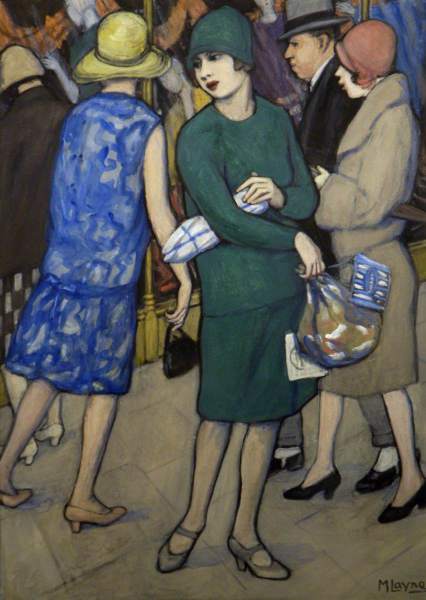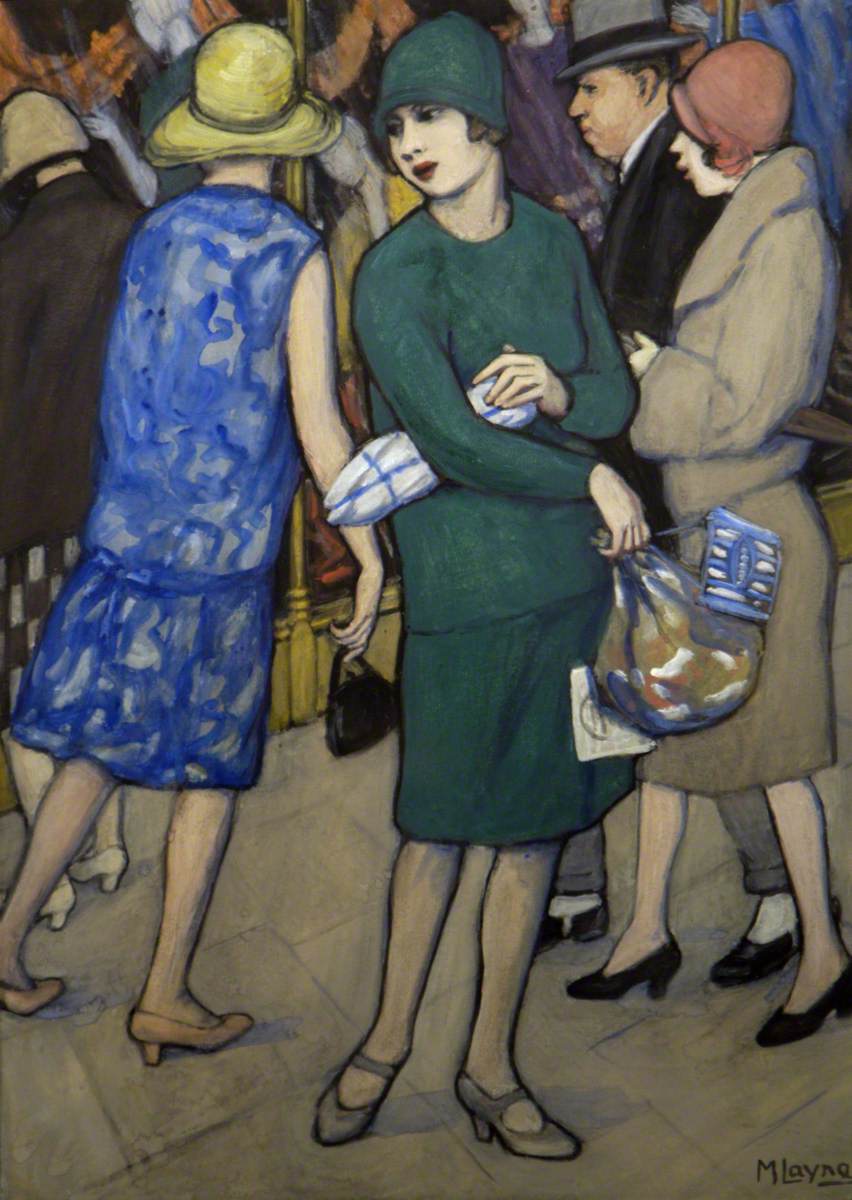‘November 7th – Plant the indoor bulbs.’ Too late, in the opinion of the Provincial Lady’s overbearing visitor, Lady Boxe. Though the Diary has its more serious moments – not very serious, at least not overtly so, but more of that later – the opening entry is delightfully trivial, and perfectly chosen. Diary of a Provincial Lady was commissioned in 1929 for Time and Tide, a (moderately) feminist periodical owned and edited by EM Delafield’s friend, one-time suffragette, Lady Rhondda, and she must have felt confident that bulbs as a topic couldn’t fail: the early planters would feel pleased with themselves, the late planters would be reassured to know that they were not alone, and if there were a few non-planters they could smile at both.
Which of us has not on occasion (on many occasions in my case) failed to plant the indoor bulbs in time for Christmas flowering, having bought them from an inferior supplier, only to have our errors pointed out by a more competent neighbour? Within a page and a half we feel a true rapport with the Provincial Lady, though we don’t have an Ethel to bring in the tea tray, nor Cook in the kitchen complaining about the range (happily no range either), nor an exotic Mademoiselle minding our daughters. If we have ordered the bulbs, and the fibre, in good time, they won’t be waiting for collection at our local railway station, nor will we have been alerted by postcard: instead we will have received a text from DPD or Hermes and be worrying that we might miss the delivery.

Much has changed, but most of us and not only those who are, or once were, Provincial Ladies (would we say women now?), have a ‘Lady Boxe’ somewhere in our lives. EM Delafield’s Lady Boxe, was the Honorable Mrs Adams, owner of the Bradfield Estate in Devon, for which her husband, Paul Dashwood, was the agent. The Dashwoods lived on the estate close to the village of Kentisbeare, where Elizabeth, was a JP, the first woman to sit on the Bench at Cullompton, and chairman of the Women’s Institute. Early in her writing career, EMD’s mother, a prolific and largely forgotten playwright and novelist, had urged her daughter to write about what she knew, and she did. Her two PB novels, Consequences (PB No. 13) and Diary of a Provincial Lady are both based in part on her own experience, the first on her year as a young postulant in a French religious order, the second on her life as the wife of a country land agent, mother of two and a pillar of the local community.
In setting and in mood the two novels could not be more different, but underlying both the message is the same: life is not easy. To navigate it successfully requires a capacity for hard work, a willingness to embrace the ordinary, self-awareness, and a sense of humour. Alex Clare has none of these. The Provincial Lady has them all. The tragic heroine of Consequences fights the system until she is beaten by it, the PL modestly adapts, accepts second best, holds her tongue, and wisely confines her grumbles to the pages of her diary. Where Alex, for all her tragedy, is dislikeable, the Provincial Lady is utterly loveable, and knowable, surprisingly so given that so many of her preoccupations and so much of the detail seem strange to us in 2018.

The Army and Navy Stores, from whom the PL orders Picnic Biscuits (what were Picnic Biscuits?) has disappeared, along with spirit lamps and kitchen ranges, and shampoo-and-sets every ten days. When did anyone last ‘break in’ a pair of shoes? Or serve ‘rabbit-cream’ and ‘coffee-shape’? Who but the very, very richest would employ ‘an expensive hospital nurse’ to care for a sick child? When did mothers last wear hats while chatting at a children’s party? Who now packs an evening dress for an overnight shopping trip to London? Do we even talk of evening dresses? Can anybody tell me what ‘a tennis coat’ was? Trimmed with a white fur collar, would Helen Mills or Suzanne Lenglen have worn one? I do recall the knife grinder calling when I was a child: I presume that like the PL’s he sharpened scissors, but I don’t remember him being ‘pleased to attend to the clocks or rivet any china’. Now we throw away our blunt scissors, and broken cups, and buy new batteries for the clocks. We no longer have accounts at the grocers, the cleaners, the chemist or the dressmaker. Instead we have our credit card bills to pay at the end the month. And we wait for the central heating boiler to be serviced and for the washing machine to be repaired, we load and unload the dishwasher and we unpack the shopping –but we never find ourselves saying, like the Provincial Lady, that ‘servants make cowards of us all’.
‘Why not butter the bread yourself’, is only one of the many questions I would put to the Provincial Lady. I suppose by that I mean ask E.M. Delafield, but the character she has created is so vivid that in spite of knowing neither her name (it’s her diary, why would she mention it?) nor even the colour of her hair (except when it is most unfortunately dyed), I find myself in imagination engaging directly with the PL. herself. Ninety years on there would be much to sympathise with, much to laugh about together.

The past is a foreign country. But the people don’t change. The provincial characters live on: the keen hunt supporter at dinner with whom one finds oneself agreeing because ‘anything else would be a waste of breath’; the Gardener who knows everything there is to know, but condescends to ask if one has problems with some rare plant with the longest of Latin names and to whom one longs like the PL to reply that ‘in my garden, the dear thing grew like a weed’; the Vicar’s wife who drops by for a couple of minutes after lunch and is still there at tea-time. London, an escape for the PL, presents its own (unchanging) challenges: has one seen the latest exhibition and the newest play? Different but just as testing as their rural counterparts, are the metropolitan dinner guests, like the celebrated bestseller, who tells the PL in the kindest way how to evade paying super-tax. ‘Am easily easily able to conceal from him the fact that I am not at present in a position to require this information’, she writes, quiet acquiescence being in most circumstances a good option. She adopts the same strategy with her husband’s employer, when Lady Boxe, after an insufferable tea party, loftily, and unthinkingly, offers to ring for the PL’s car. ‘Refrain from replying that no amount of ringing will bring my car to the door all by itself’, she notes later, confining the expression of her irritation to the nightly diary entry.
Bracketed ‘Mems to self’ and ‘queries’ are carefully phrased to ‘raise the tone’, or more conversationally to suggest a whispered aside to her imagined reader. ‘Must try to remember that Social Success is seldom the portion of those who live in the provinces’, ‘Does not a misplaced optimism exist, common to all mankind, leading on to false conviction that social engagements, if dated sufficiently far ahead, will never really materialise?’ and ‘Does motherhood lead to cynicism?’ are typical examples. The answer to the last is a resounding ‘no’. Anxious not to appear ‘foolish’ about them, she plays down her children’s qualities in public, while privately devoted to them, happily joining in childish games, and on occasion mediating between them and their father. ‘Life of a wife and mother sometimes very wearing’ is another bracketed comment, an understatement typical of the Provincial Lady.

Although they have largely been forgotten, EM Delafield wrote plays and film scripts as well as novels. The ‘voices’ of the Diary are brilliant, from the children’s truthful if not always welcome comments, to Mademoiselle’s fiercely held opinions, invariably referencing one saint or another, and old Mrs Blenkinsop’s laments which contrive to be both smug and self-pitying. She breathes life into all her characters through their wonderfully individualised speech. Only one barely speaks. The Provincial Lady’s husband is a man of few words, few of them kind.
Robert’s longest utterance in the entire book is ‘now that’s what I call an attractive woman’, about PL’s friend; his shortest ‘Well’, but this, adds the PL, ‘very expressively’. Though she would never criticise him, even in the privacy of the diary, it is clear that in addition to being a stern father, as a husband Robert is, at best, undemonstrative, more often than not dozing over The Times. He takes not even a polite interest in the PL’s clothes. She is astonished when one day he asks if her cold, which he had previously ignored, is better. She replies that it has gone: ‘Then why, he asks, do I look like that?’ Asked by the PL at a local wedding if it reminds him of their own, ‘he looks surprised and says No, not particularly, why should it?’.
Never short of advice for others, Lady Boxe’s counsel to all girls was ‘to marry, no matter what the man is like, as any husband is better than none, and there are not nearly enough to go round’. Alex Clare’s failure to heed a similar warning led to her downfall. Are we to compare Robert with other EMD husbands? Laura’s Alfred in The Way Things Are (1927), ‘unalterable, in many ways unobservant, and yet with peculiar qualities of solidity and kindness’, or Monica’s Herbert in Thank Heaven Fasting (1932) ‘balding and boring’ but reliable and offering ‘a recognised position as a married woman.’ Is Robert ‘any husband, better than none’?
Towards the end of the Diary an unmarried feminist academic newly arrived in the village says to the Provincial Lady that she strikes her as being ‘a woman whose life has never known fulfilment’. The PL notes briefly, but so sadly, ‘Have often thought exactly the same thing myself, but this does not prevent my feeling entirely furious with Miss P for saying so.’ Diary of a Provincial Lady is warm, and funny, but not trivial.
